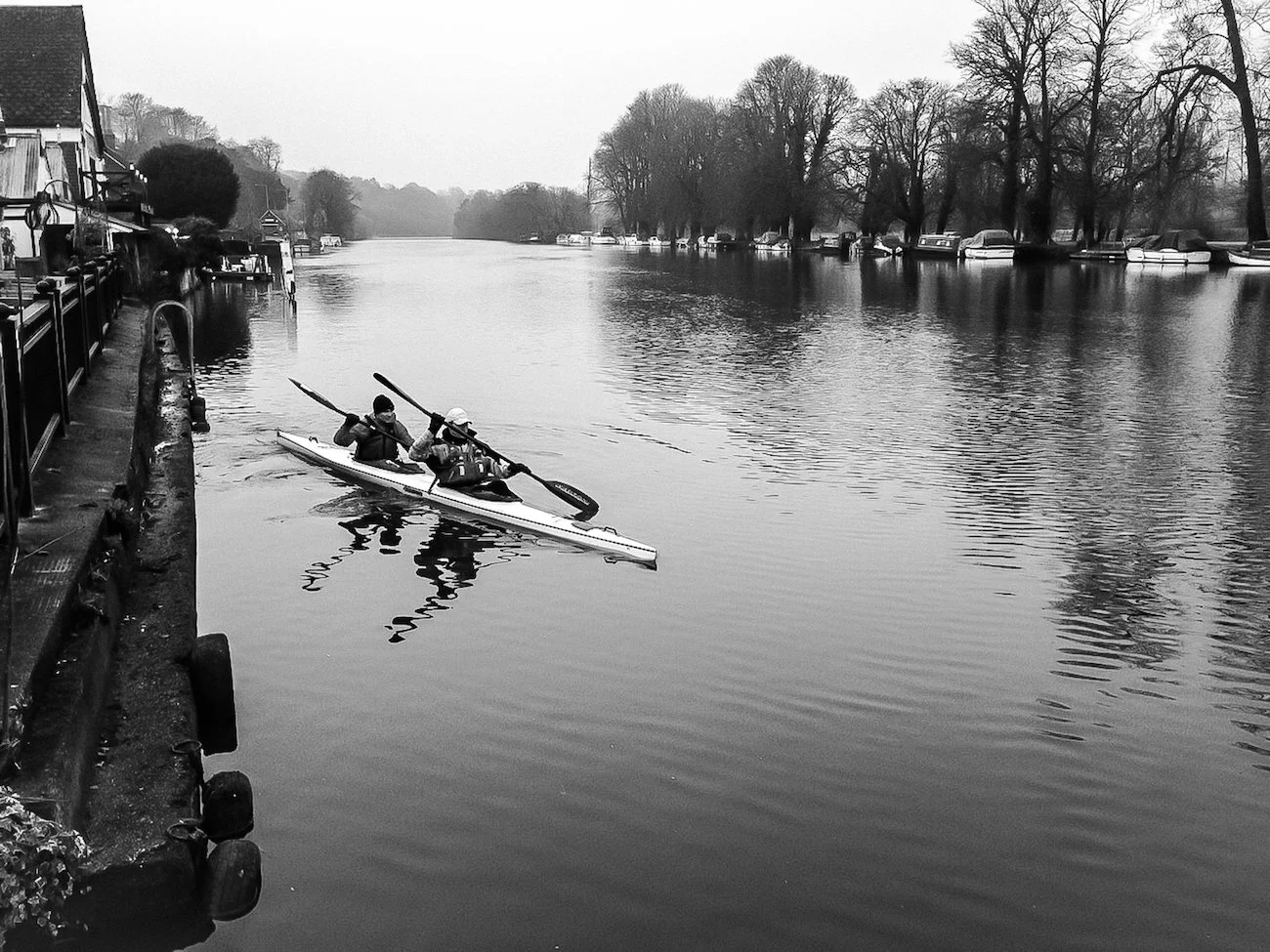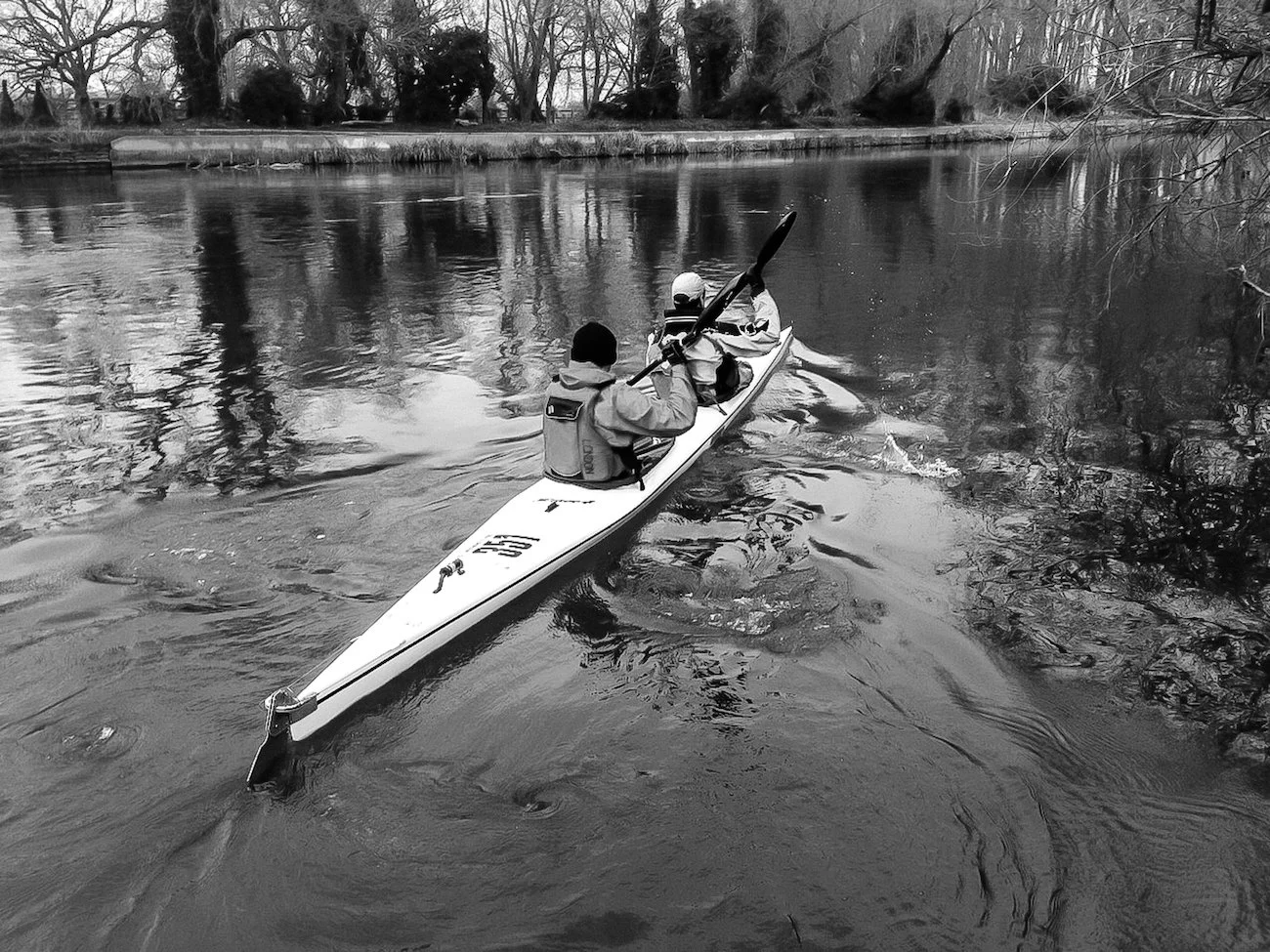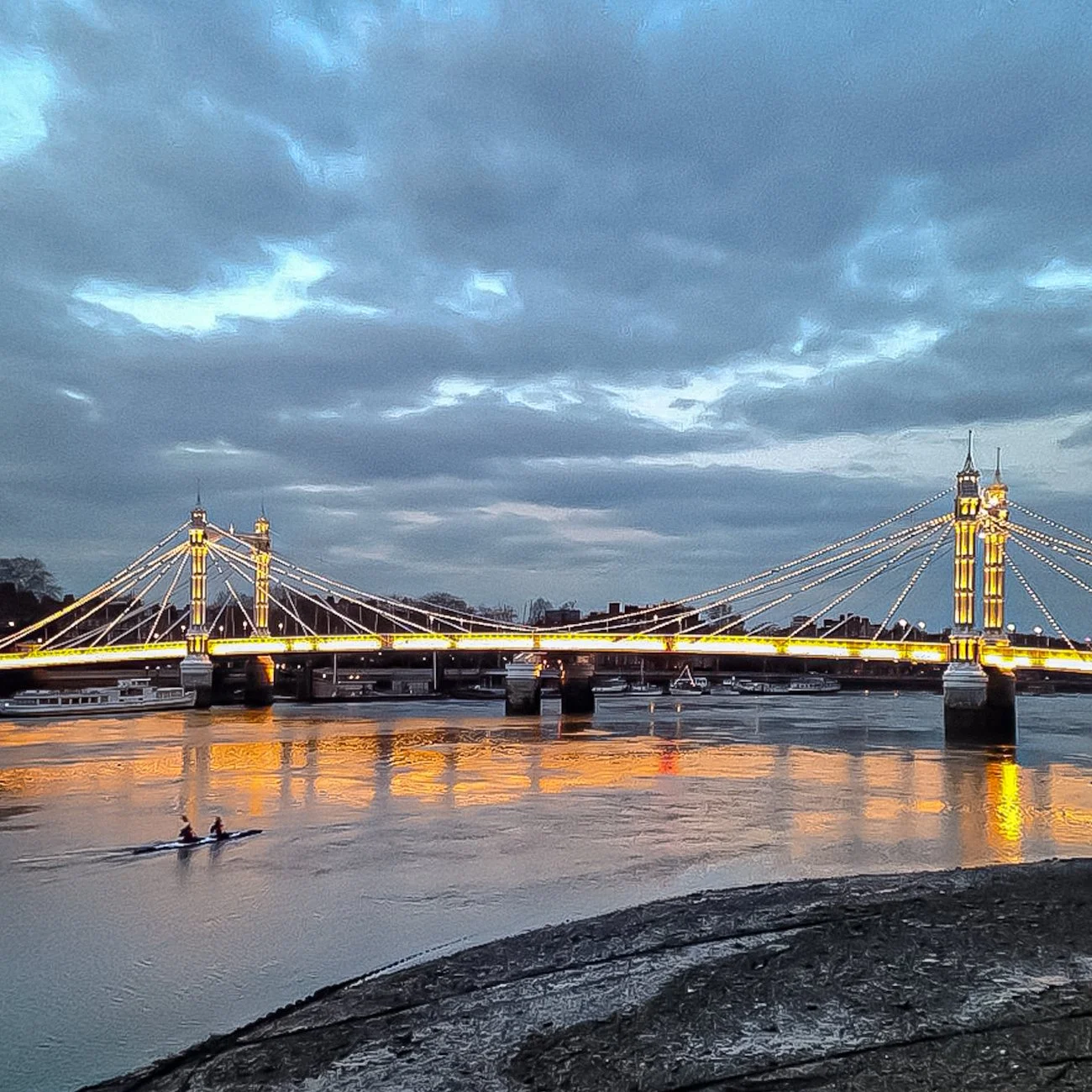What it's like to take on the Devizes-to-Westminster canoe race.
It’s 3am and a voice calls my name from the darkness. It’s quiet at first, muffled by a scarf wrapped tightly around my head to keep me warm because I’m still soaking wet and bitterly cold.
“Chris – you’re steering us towards the bank”.
I groan, and think to myself “I’ve just fallen asleep again – how does this keep happening? The quiet voice is right, I have just knocked the steering handle of our 2-man kayak towards the mud bank. And if I don’t do something about it, we’ll collide and potentially put a hole in the hull, meaning we’d be out of the race.
On second thoughts, maybe that’s not such a bad thing..
We’ve been paddling for almost 20 hours. Paddling in near darkness, the only thing we have to guide us is the moonlight reflecting off the water, making it look like thick black oil.
Wearing cold and sodden clothes, we shiver almost uncontrollably; we’ve been swimming in the canal 4 times already today as we had to swap teams around due to an injury and only had a few hours to train together – meaning we’re really unbalanced in this boat.
It was cold. Freezing cold.
The thought of rolling over again was putting serious concerns of hypothermia into my head. Falling in the middle of the canal, some 20 metres from the edge, would take us at least 6 minutes of fumbling to get to the bank. On top of this – we received a message that we were in danger of getting disqualified as we’d come into the last checkpoint with just 15 seconds to spare before the cut off!
Now we couldn’t afford to fall in – or afford to take it too slow.
An hour later, we meet our support crew at the halfway point: they’ve driven an hour off their planned route to bring us hot pizza. I could’ve cried with joy when I saw this gesture – they sit us down, wrap us in towels, give us dry clothes and encourage us to keep on going. This is the kind of support you remember years later when the misery of the adventure has blown away.
Suddenly, the challenge didn’t seem quite so impossible.
With around 50 of the 125-mile race still to go of the, we decide the best strategy is to take more smaller breaks. Whilst this sounds counter-intuitive when you’re so close to being disqualified, the rational made perfect sense:
The longer you paddle for, the more tired you get. The more tired you get, the more likely you are to fall in (because your exhausted brain can’t balance you properly so you overcompensate on the wobbles).
The more you go in the water, the colder and more tired you get (by shivering to stay warm) and the slower pace you average (by taking longer breaks to change clothes and warm up). Sure, we wouldn’t be troubling the race leaders – far from it in fact; we were in the bottom 10%.
This had become a battle of the will just to keep going. As I watched my exhaled breath in the cold April night, I was reminded that even when it feels like you're on the ropes and failure is inevitable; it doesn’t take much to pick yourself up, dust yourself down and get back on.
Just keep going!
Of the 4 boats in our team that had been training for this, we were the only other boat that was still in the race. We’d lost one team to injury before we’d even got to the start line, and a second had crashed and damaged their boat during the race.
Our one other boat team was paddling a much more stable but slower kayak. And the two paddlers had a combined age of 105 years!
Reflecting on the race a number of years after, I realised the race had mirrored my career and life: the uncertainty; the challenge; the reliance on those around you, and the learning that comes with attempting something you know little about.
We’d been lucky to make it to the finish line; we hadn’t been nearly as prepared, as we should’ve been – as the team captain, I took responsibility for this. I realised I had ignored advice from people that had done it before – because I thought I could figure it all on my own and it’d be quite simple, just paddle! But I also ignored the people saying that said complete novices shouldn’t do it.
1. It’s going to be uncertain, and you need to deal with that – getting to the end will be a bonus if you’ve never done this kind of thing before!
2. Rest before you really need to rest – so you don’t end up in the water (and all the extra time demands of getting out and dry)
3. Listen to people that have done it before but keep an open mind – a lot of people will make it sound harder than it actually is.
It’s 3am and a voice calls my name from the darkness. It’s quiet at first, muffled by a pillow pressed up against my ear. “Chris – you need to get up, the race starts soon…”
You can find out more and enter the ‘DW’ at the official website.















The ‘Crossing the Line’ ceremony is a traditional initiation rite that is held when a ship crosses the Equator. It is a time-honoured naval tradition that has been observed by many navies around the world, including the Royal Navy.
As relative newbies to maritime environment, we had to pay our dues to Neptune in order to get safe passage for the rest of our trip. During the ceremony, all sailors who have not previously crossed the Equator, are initiated into the "Order of the Shellback" by seasoned sailors who have crossed the Equator before. The ceremony typically involves a series of hilarious rituals, designed to induct the new initiates into a class of experienced ocean goers.